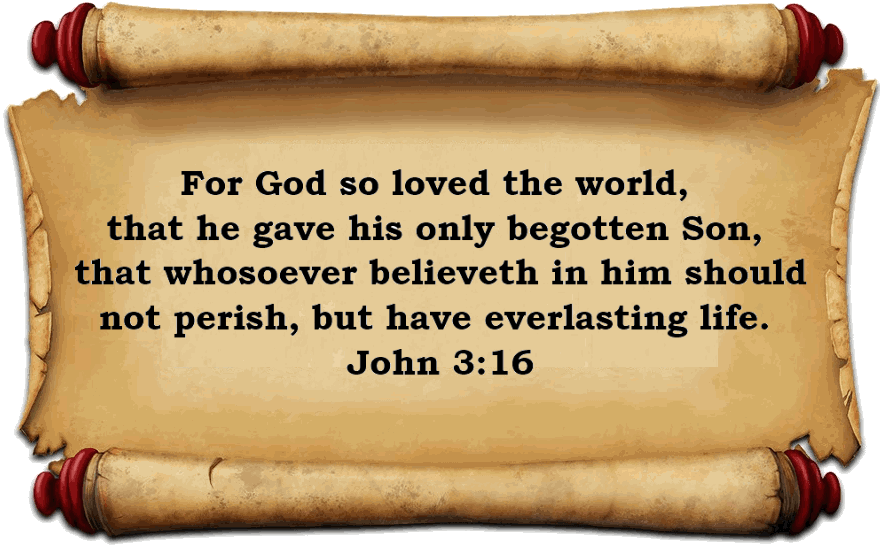

To
whom does Paul write and
what does he say?
Although the epistle is written to all
physical descendants from Abram the Hebrew (Gen 14:13), he addresses
two groups
of Jews - those under Mosaic law and those partakers of Christ the
Messiah.
While Paul's acknowledges that some Mosaic
`enlightened' Jews had progessed to `the end' in Jesus Christ the
Messiah and
thereby became `illuminated', he urges both groups to consider and
desire `the
end' which is in Jesus Christ the Saviour and have `his rest'.
But
isn't an 'enlightened'
(Heb 6:4 ) or `illuminated' man (Heb 10:32 ) a Christian? No. Under Aaron (Heb
5:4),
whose name means `enlightened' (Num 8:2, Num 4:16), the Mosaic Jew is
referred to
as `enlightened' (Heb 6:4). However, those whose beliefs had shifted to
the
doctrine of Christ (Heb 6:1) were now addressed as the `illuminated'
(Heb 10:32),
thereby being called `once enlightened' (Heb 4:6).
Doesn't
'tasted ...gift', and`partakers ..Holy Ghost' (Heb 6:4) make
them Christians?
No.
The following people were non-Christian Jews who had tasted
the word of God, the scriptures (Heb 6:5) and partook of the Holy Ghost
(not
necessarily permanently) - David (Mark 12:36) holy men of God (2 Peter
1:21),
Jeremiah (Heb 10:15-17), the prophets (1Pet1:11).
What
is the doctrine of Christ?
It's the doctrine containing all six elements
of Heb 6:1-4 as taught by Jesus Christ himself as the Messiah.
What
is `the end' for the Jew?
The
scriptures outline three, but in this epistle,
Paul refers to only two of them. Ultimately, the
final destination for both the `enlightened' Jew under Moses and the
`illuminated'
Jew of Christ was full assurance of hope to `the end' in Jesus Christ
as the
Saviour (Heb 6:11). In the course of this labour, there were those who
had
reached a `halfway' point which Paul also describes as an end, which is
`the
end' as a partaker of Christ (Heb 3:14). There is another 'the end'
(Matthew
24:14; Dan 12:8-Dan 12:13) involving Tribulation faith and works (Rev 12:11; Rev 14:12),
but the above meanings preclude this `end' from the Hebrews epistle.
How
does Paul describe
their struggle to arrive at these ends?
For the Mosaic Jew they are urged to `hold
fast the confidence ...firm unto the end' (Heb 3:6) and to 'hold the
beginning
...confidence stedfast unto the end' (Heb 3:14).
Now, for the partakers of Christ, they are
encouraged to `shew the same diligence to the full assurance of hope
unto the
end' (Heb 6:11). and furthermore to `Let us hold fast the profession of
our
faith without wavering...' (Heb 10:23 a)
However, for both groups they are exhorted to `Cast
not away ... confidence ...ye have need of patience.' (Heb 10:35 a,Heb 10:36 a).
Secondly, Paul urges them to `...labour ...to enter into that rest..:'
(Heb
4:11 a) and thirdly, `let us lay aside every weight, and the sin ... let
us run
with patience the race ...Looking unto Jesus' (Heb 12:1 b, Heb 12:2 a).
But doesn't `labour ... to enter into that
rest' (Heb 4:11) mean working for your salvation in the Tribulation?
No. Perhaps the reader may identify with the
struggle that can go on for many years for the person wanting
`spiritual' rest.
Various attempts may produce temporary relief in other religions, new
age,
yoga, meditation etc. When finally saved by God's grace by believing on
Jesus
the Saviour, the struggle stops and "Ah! The rest!". However, you had
a labour to get there! Looking back on it all, you weren't working for
your
salvation.
Were the `enlightened' (Moses) and
`illuminated' (Christ) Jews finding it a labour to get into Jesus' rest?
Yes. For the `enlightened' Mosaic
Jew to become an `illuminated' partaker of Christ, meant cataclysmic
separation
from their traditions, kinsmen and beliefs. Being cast from family and
friends,
they would have had to fend for themselves. For the Christian
helping
`illuminated' it meant further labour as they `endured a
great fight
of afflictions' and `were made a gazingstock both by reproaches and
afflictions' (Heb 10:32-33). Furthermore, while the `enlightened'
viewed them
as traitors, Rome saw them as just another sect to be exterminated. At
Pentecost, these two stages happened in `one hit', without labour as it
were,
when the Mosaic Jew knew that Jesus was both Lord and Christ (Acts 2:36)
What
is"the sin'(Heb12:1)
that besets?
It
is `unbelief' (Heb 3:12, Heb 4:11) that easily besets the `enlightened' Mosaic Jew to consider that
Jesus
Christ could be `the author' (Heb 12:2) and the `illuminated' Jew of Christ
from
entering `the rest' in Jesus `the finisher' (Heb 12:2).
What
does it mean to `sin
wilfully'?
Because
they had rejected
the blood of Jesus, the, `illuminated' Jews, were still dealing with
willful
sins under Levitical law which demanded trespass sacrifices which Jesus
Christ
endorsed. But Paul says "I've shown you how the Levitical blood is only
a
shadow of the real thing - and by rejecting him, you wipe your feet on
him.
Furthermore, you shame a once holy sacrifice, by continuing to perform
it." In other words, if you were a football coach you wouldn't take a
once
revered but dead footballer out of his coffin and prop him up in the
front row
week after week. This would treat him in an `unholy' manner.
What is `the day approaching' Heb 10:25? This is the
`another day' of
Heb 4:8. In the context of Heb 10:19-25 it is the day of entering the
rest of
Jesus. Many people join
Is
Hebrews 13 addressed to Christians? No, but the Christian may take
practical
and spiritual advice from the chapter. Paul uses familiar Jewish
landscape and
terms to convince the Jew.
Some
verses explained are:
V1
'Brotherly love' is not an exclusive term for Christians.
V2
Implies that Jesus is their stranger.
V4 A nice
way to say 'You Jews are whores. Leave the 'enlightened and
illuminated beds' and be married to Jesus.'
V5-6 Echoes Deut 31:6-8. God Jehovah is Jesus the Saviour.
V7 Follow
the Christians faith to `the end' in Jesus.
V8 This
reinforces Jesus of Heb 4:8; 6:20; 10:19 and Heb 12:24
V10-13 Embeds Jesus into their familiar Jewish background.
V15 Blood
sacrifices have been replaced with praise.
V18 A good
conscience is the purged conscience (Heb 9:14 ) in Jesus.
V23
Timothy's Jewish connection is evidence for Paul's argument.
Connecting
the dots ...
God
addresses the Hebrews one last
time with Paul writing the entire 13 chapters while in prison for the 2nd
time, around 67AD (Heb 10:34;13:23-24). God so loves the apple of his
eye, they
are given their very own gospel in Matthew (37AD) and then their
exquisitely
timed epistle just prior to Jerusalem's demise.
Does
Paul point to any upcoming
Tribulation and needed faith and works for the 'illuminated'?
No,
on the contrary. The Jew being dull of hearing
(Heb 5:11) has a history of deafness
What
is the salvation doctrine
of Paul's epistle to the Hebrews?
Only
one - "Jesus"rest' is 'the end', resulting from your 'labor' to
'believe' him as Saviour". Tribulation faith and works for salvation is
not revealed in this epistle.
Can
the Tribulation Jew be
saved by adopting this doctrine of this epistle?
No,
it'll be too late. Their salvation 'end' in the Tribulation will be the
doctrine of Rev 12:11 and Rev 14:12, of faith and works. The Jew will need
more
than this epistle's 'believe' to have his `end' in Jesus' rest. They
can have
Jesus as the finisher of their faith up to the Tribulation or as their
`Tribulation author', having to finish with their own works.
Conclusion
For
the Tribulation Jew, it
will be a pointless exercise to study Hebrews for confirmation that he
needs
faith and works to be saved. Why? It's not mentioned. However, reading
other
passages in the Bible will show him this necessity.
Harley Hitchcock
This
website’s front page is:
www.
HOW CAN I BE
SURE
OF GETTING TO
Which of the following will get you there?
 *
* *
* *
* *
* *
* *
* *
* *
* *
* *
* *
* *
* *
* *
* *
* *
*
 *
* *
* *
* *
* *
* *
* *
* *
* *
* *
* *
* *
* *
* *
* *
* *
*
 *
* *
* *
* *
* *
* *
* *
* *
* *
* *
* *
* *
* *
* *
* *
* *
*
19
REASONS THE
CHURCH WILL NOT ENTER
THE TRIBULATION
 *
* *
* *
* *
* *
* *
* *
* *
* *
* *
* *
* *
* *
* *
* *
* *
*
Australian Bible Ministries, PO
Box 5058 Mt. Gravatt East 4122 Qld, Australia
www.AustralianBibleMinistries.com